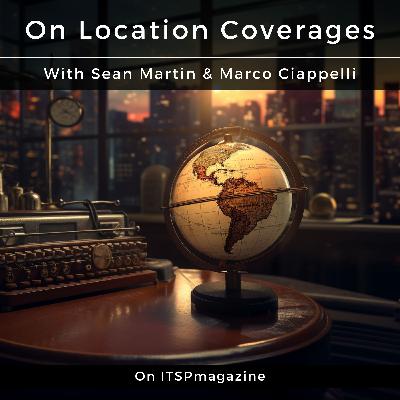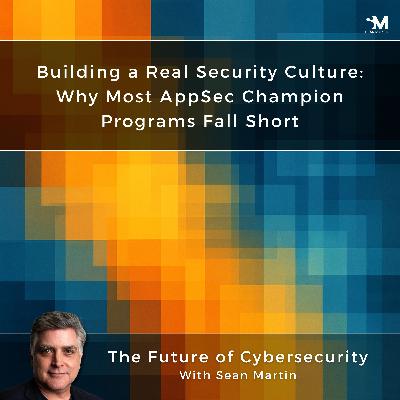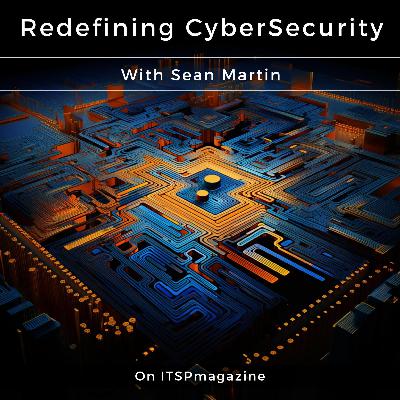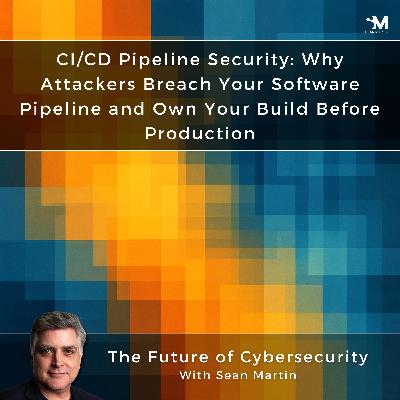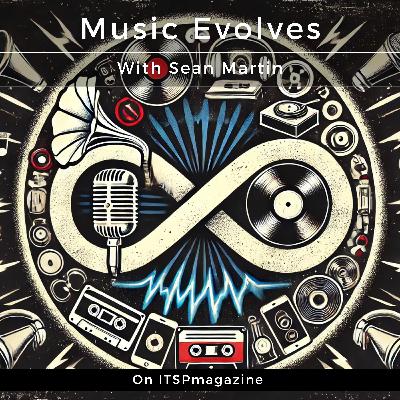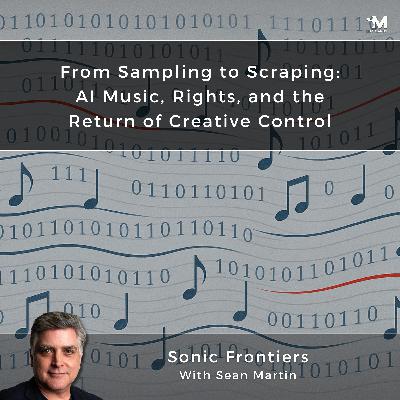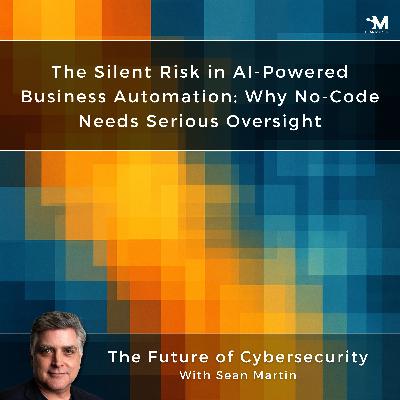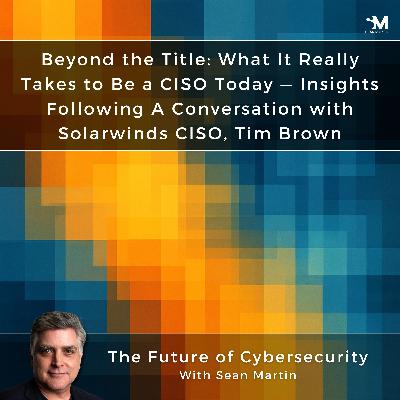Everyone Is Protecting My Password, But Who Is Protecting My Toilet Paper? - Interview with Amberley Brady | AISA CyberCon Melbourne 2025 Coverage | On Location with Sean Martin and Marco Ciappelli
Description
Everyone Is Protecting My Password, But Who Is Protecting My Toilet Paper? - Interview with Amberley Brady | AISA CyberCon Melbourne 2025 Coverage | On Location with Sean Martin and Marco Ciappelli
AISA CyberCon Melbourne | October 15-17, 2025
Empty shelves trigger something primal in us now. We've lived through the panic, the uncertainty, the realization that our food supply isn't as secure as we thought. Amberley Brady hasn't forgotten that feeling, and she's turned it into action.
Speaking with her from Florence to Sydney ahead of AISA CyberCon in Melbourne, I discovered someone who came to cybersecurity through an unexpected path—studying law, working in policy, but driven by a singular passion for food security. When COVID-19 hit Australia in 2019 and grocery store shelves emptied, Amberley couldn't shake the question: what happens if this keeps happening?
Her answer was to build realfoodprice.com.au, a platform tracking food pricing transparency across Australia's supply chain. It's based on the Hungarian model, which within three months saved consumers 50 million euros simply by making prices visible from farmer to wholesaler to consumer. The markup disappeared almost overnight when transparency arrived.
"Once you demonstrate transparency along the supply chain, you see where the markup is," Amberley explained. She gave me an example that hit home: watermelon farmers were getting paid 40 cents per kilo while their production costs ran between $1.00 to $1.50. Meanwhile, consumers paid $2.50 to $2.99 year-round. Someone in the middle was profiting while farmers lost money on every harvest.
But this isn't just about fair pricing—it's about critical infrastructure that nobody's protecting. Australia produces food for 70 million people, far more than its own population needs. That food moves through systems, across borders, through supply chains that depend entirely on technology most farmers never think about in cybersecurity terms.
The new autonomous tractors collecting soil data? That information goes somewhere. The sensors monitoring crop conditions? Those connect to systems someone else controls. China recognized this vulnerability years ago—with 20% of the world's population but only 7% of arable land, they understood that food security is national security.
At CyberCon, Amberley is presenting two sessions that challenge the cybersecurity community to expand their thinking. "Don't Outsource Your Thinking" tackles what she calls "complacency creep"—our growing trust in AI that makes us stop questioning, stop analyzing with our gut instinct. She argues for an Essential Nine in Australia's cybersecurity framework, adding the human firewall to the technical Essential Eight.
Her second talk, cheekily titled "Everyone is Protecting My Password, But No One's Protecting My Toilet Paper," addresses food security directly. It's provocative, but that's the point. We saw what happened in Japan recently with the rice crisis—the same panic buying, the same distrust, the same empty shelves that COVID taught us to fear.
"We will run to the store," Amberley said. "That's going to be human behavior because we've lived through that time." And here's the cybersecurity angle: those panics can be manufactured. A fake image of empty shelves, an AI-generated video, strategic disinformation—all it takes is triggering that collective memory.
Amberley describes herself as an early disruptor in the agritech cybersecurity space, and she's right. Most cybersecurity professionals think about hospitals, utilities, financial systems. They don't think about the autonomous vehicles in fields, the sensor networks in soil, the supply chain software moving food across continents.
But she's starting the conversation, and CyberCon's audience—increasingly diverse, including people from HR, risk management, and policy—is ready for it. Because at the end of the day, everyone has to eat. And if we don't start thinking about the cyber vulnerabilities in how we grow, move, and price food, we're leaving our most basic need unprotected.
AISA CyberCon Melbourne runs October 15-17, 2025 Virtual coverage provided by ITSPmagazine
GUEST:
Amberley Brady, Food Security & Cybersecurity Advocate, Founder of realfoodprice.com.au | On LinkedIn: https://www.linkedin.com/in/amberley-b-a62022353/
HOSTS:
Sean Martin, Co-Founder, ITSPmagazine and Studio C60 | Website: https://www.seanmartin.com
Marco Ciappelli, Co-Founder, ITSPmagazine and Studio C60 | Website: https://www.marcociappelli.com
Catch all of our event coverage: https://www.itspmagazine.com/technology-and-cybersecurity-conference-coverage
Want to share an Event Briefing as part of our event coverage? Learn More 👉 https://itspm.ag/evtcovbrf
Want Sean and Marco to be part of your event or conference? Let Us Know 👉 https://www.itspmagazine.com/contact-us
Hosted by Simplecast, an AdsWizz company. See pcm.adswizz.com for information about our collection and use of personal data for advertising.

